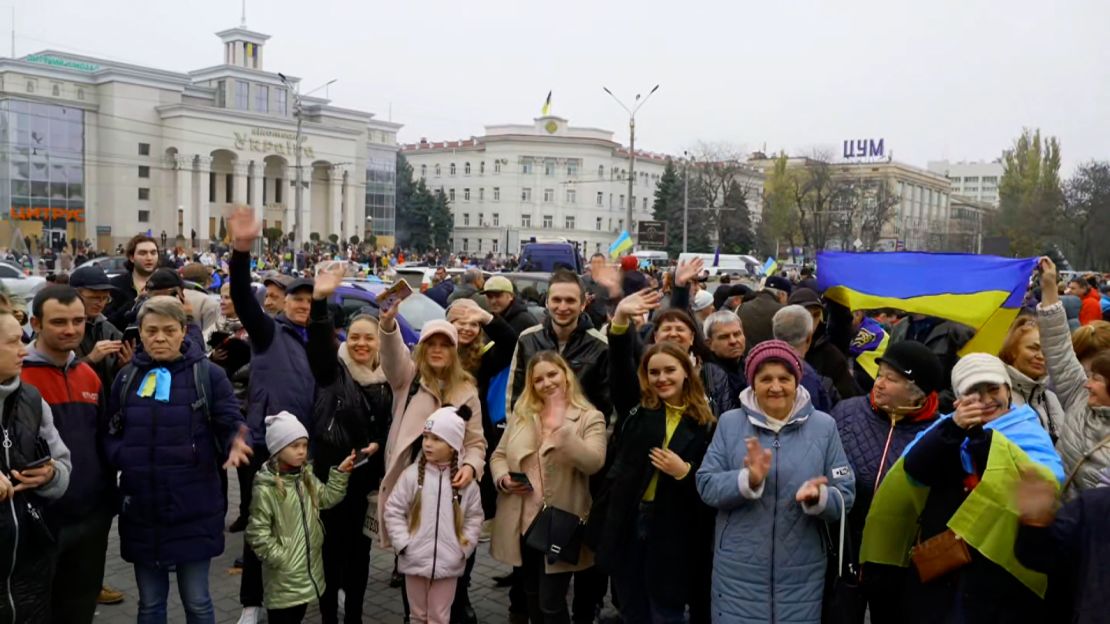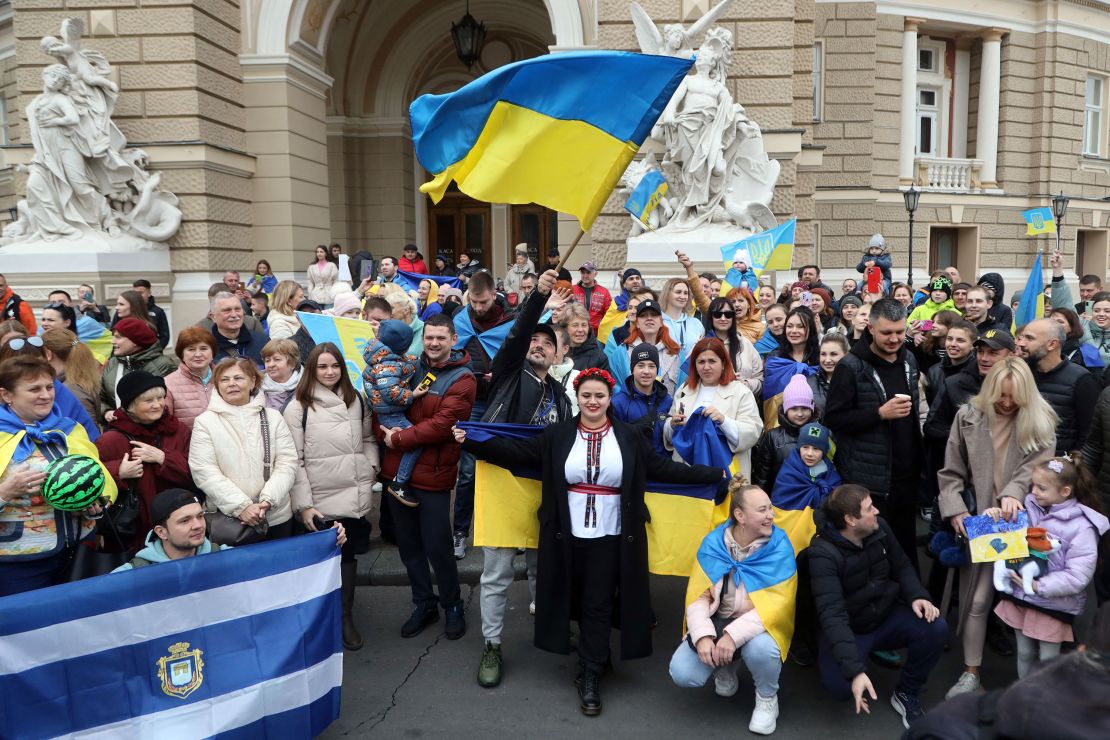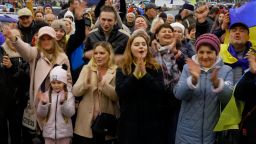Once the scene of Russian occupation, the drive into newly liberated Kherson city was eerily quiet.
For much of the journey through smaller towns and settlements, our team of CNN journalists was forced to drive through diversions and fields: bridges over canals were blown up, and roads were full of craters and littered with anti-tank mines.
Trenches and checkpoints were empty, quickly abandoned by Russians who on Friday announced they had withdrawn from the west bank of the Dnipro River in the strategic southern region of Kherson, leaving the regional capital of the same name and surrounding areas to the Ukrainians.
The outskirts of the city, which had been occupied by Russian forces since March 3, were deserted, with no military presence except for a Ukrainian checkpoint around 5 miles outside of the city center, where half a dozen soldiers waved CNN’s crew in.
Billboards around the city that once read “Ukraine is Russian forever” have reportedly been spray-painted over with the message: “Ukraine was Russia’s until November 11.”
The city’s residents have no water, no internet connection and little power. But as a CNN crew entered the city center on Saturday, the mood was euphoric.
Once the scene of large protests against Russian plans to transform the region into a breakaway pro-Russian republic, the streets of Kherson are now filled with jubilant residents wrapped in Ukrainian flags, or with painted faces, singing and shouting.
The military presence is still limited, but huge cheers erupt from crowds on the street every time a truck full of soldiers drives past, with Ukrainian soldiers being offered soup, bread, flowers, hugs and kisses by elated passersby.
As CNN’s crew stopped to regroup, we observed an old man and an old woman hugging a young soldier, with hands on the soldier’s shoulder, exchanging excited “thank yous.”


After living under Russian occupation, every person we’ve spoken to has had experiences that have terrified them: earlier today, a teenager told CNN he had been taken and beaten by Russian soldiers who believed he was a spy. Residents told us they are emotionally exhausted, and overwhelmed by what this new-found freedom means.
With the occupiers gone, everyone wants you to understand what they’ve been through, how euphoric they feel right now, and how much they’re grateful to the countries who have helped them.
But Ukrainians are under no illusion that Kherson’s freedom spells the end of their country’s ordeal, or the difficulties that winter will bring.
Everyone we have spoken to is aware that there are tougher days to come: that the Russians across the river could shell them here. It is also unclear whether all Russian troops have left Kherson and the wider region. Behind this euphoria, there’s still that uncertainty.
But for today, at least, they’re celebrating.
CNN’s Amy Woodyatt contributed to this report.

